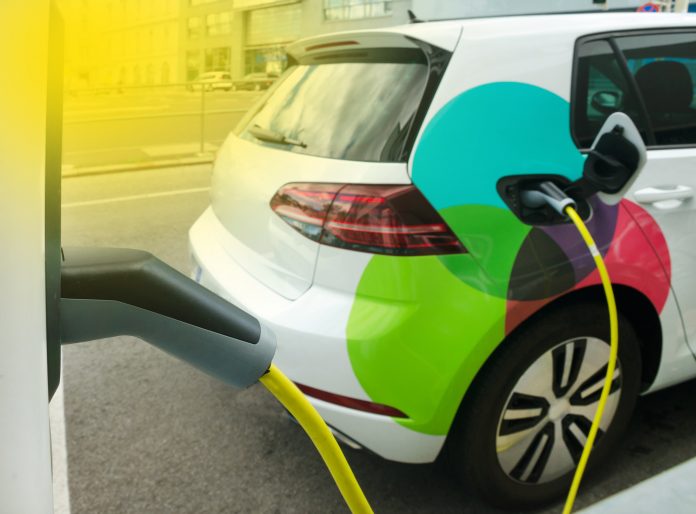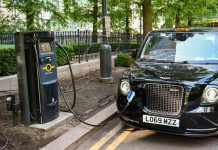Emily Hanson, Content Manager at Lease Fetcher, outlines how car manufacturers are catering to the demand for greener, more ethical vehicle choices
As coverage of the Climate Crisis intensifies, modern motorists are becoming increasingly discerning in their purchases. In a 2020 RAC survey, twice as many interviewed drivers planned to make the switch to an electric car compared to results from the year before. Moreover, citing a combination of ethical and environmental reasons, 600,000 people in the UK class themselves as vegan in 2019 – this figure has quadrupled since 2014.
With events like the Volkswagen Diesel Emissions Scandal shining a light on the environmental shortcomings of the world’s major car manufacturers, drivers are taking a more conscious approach than ever towards their consumption. But, how are car manufacturers adapting to this new eco-conscious climate?
Materials used
Leather is often equated with luxury, but for many motorists, this is no longer the case. The modern animal agriculture system has come under severe fire in recent years, with statistics demonstrating its impact is worse that the emissions of road vehicles combined. As leather is a product of this industry, it is clear why many motorists are shifting away.
For years, premium models were set apart from entry-level models partly by the use of leather instead of cloth and plastic. Modern motorists don’t want to compromise on quality or premium feel and are demanding equal vegan alternatives for premium trims.
Major car manufacturers have been creative, producing “vegan cars” with a wide range of creative, premium alternatives to leather.
The Model 3 by all-electric Tesla is now 100% vegan, using vegan yet suede-like Alcantara throughout the cabin. Audi also uses this material, whilst other premium manufacturers like BMW and Mercedes have their unique offerings: Sensatec and Artico respectively. Toyota’s Softex, Land Rover’s Suedecloth, and Lexus’ NuLuxe are all growing increasingly popular amongst eco-conscious drivers.
Primarily, manufacturers tend to offer these materials in their latest electric models, aware of the interlinking appeal for vegan and eco-conscious drivers. The BMW i3, BMW’s only current electric vehicle, is deemed 95% recyclable, with a carbon fibre frame and using natural materials like Kenaf in the interior rather than petroleum-based plastics.
Breadth of EV Options and Roadmap
Almost every major manufacturer has at least one electric car in their range, with many producing additional hybrid options.
Tesla is the most popular manufacturer of electric cars amongst UK consumers, unsurprisingly given they are an all-electric brand – the Tesla Model 3 was the most popular model in 2019. Tesla is expanding their range in the coming years as they ride this wave of success.
Despite being around since 1996, Volvo’s all-electric sub-brand Polestar has read the mood of the public and introduced two production cars since 2017, the Polestar 1 and Polestar 2. Beforehand, they produced performance cars for racing purposes.
Mainstream manufacturers have set roadmaps for producing more electric cars in the future. Here is a summary of some of their targets:
- Volkswagen: EVs to make up 40% of their range by 2030.
- Volvo: 50% of sales to come from EVs by 2025.
- Honda: Full line-up of electric car options by 2025.
- BMW: 25 electrified models by 2023 (half fully-electric).
- Nissan: 8 new electric models by 2022.
- Toyota: 50% sales from EVs by 2025.
- Kia: 11 new EV models by 2025 and 25% sales from EVs by 2029.
- Hyundai: 560,000 pure EVs to be sold globally by 2025
- Audi: 20 all-electric models and 10 plug-in hybrid cars by 2025.
Manufacturers appreciate that those looking to switch to electric vehicles have varying needs in terms of practicality and performance so offer different body styles. The Audi E-Tron is available as an SUV or Estate, BMW i3 is a quirky city car, and the Hyundai Ioniq and Volkswagen e-Golf are hatchback.
Very few manufacturers have no electric offerings (Land Rover, Suzuki, and Dacia) though they all have hybrid options.
Production emissions
The European Union set a target for automakers to cut their CO2 emissions by 37.5% by 2030 (compared to 2021 levels). In the process of going green, the manufacturing line itself cannot be overlooked. Automakers are reevaluating their production facility and entire supply network to find opportunities to reduce CO2 emissions.
The BMW Group has recorded a 39% decrease in emissions between 2014 and 2019. They have found it easier to limit emissions with brand new plants, which they have equipped with solar panels from the beginning.
Similarly, Nissan has reduced the CO2 emissions per vehicle by 33.7% since 2005.
Here is a summary of some major manufacturer’s goals in terms of carbon neutrality:
- Volvo: Has one fully carbon-neutral plant – aim for all to be CO2 neutral by 2025.
- Mercedes: All plants CO2-neutral by 2022.
- Nissan: 80% reduction in emissions by 2050 (compared to 2000).
- Renault: 25% reduction in CO2-per-car full-life-cycle.
- Audi: Carbon neutral by 2050.
- Toyota: Reduce CO2 emission of vehicles by 90% by 2050 (compared to 2010).
- Ford: Carbon neutral by 2050.
Summary
Conscious consumerism is growing increasingly prevalent in the automotive industry and manufacturers are adapting to meet new demands.
Innovative technology in terms of powertrains, materials, and the production line itself has helped major manufacturers remain relevant with eco-conscious modern motorists.
The changes these manufacturers are making now will only intensify over the coming decades until the automotive industry becomes as close to carbon-neutral as possible.











